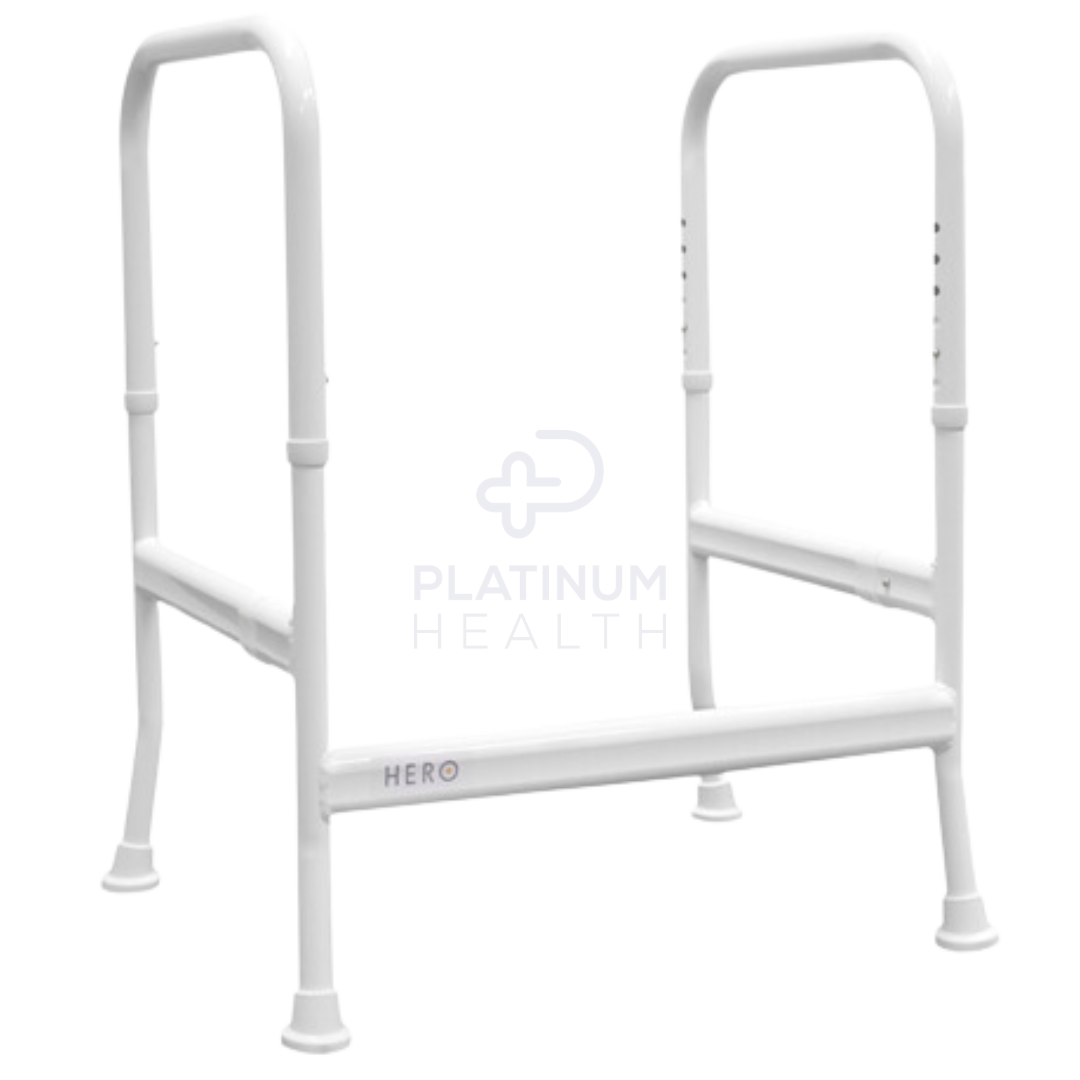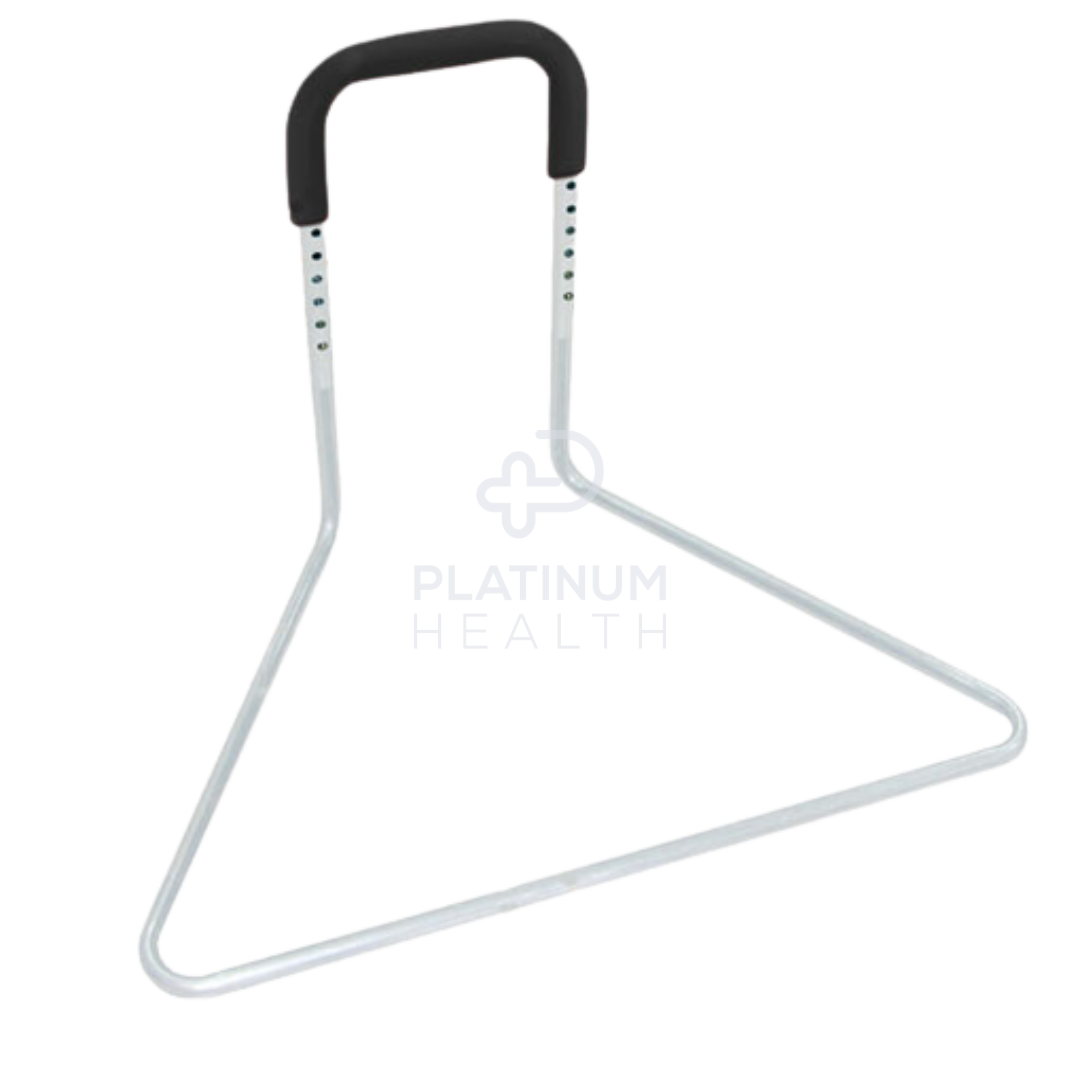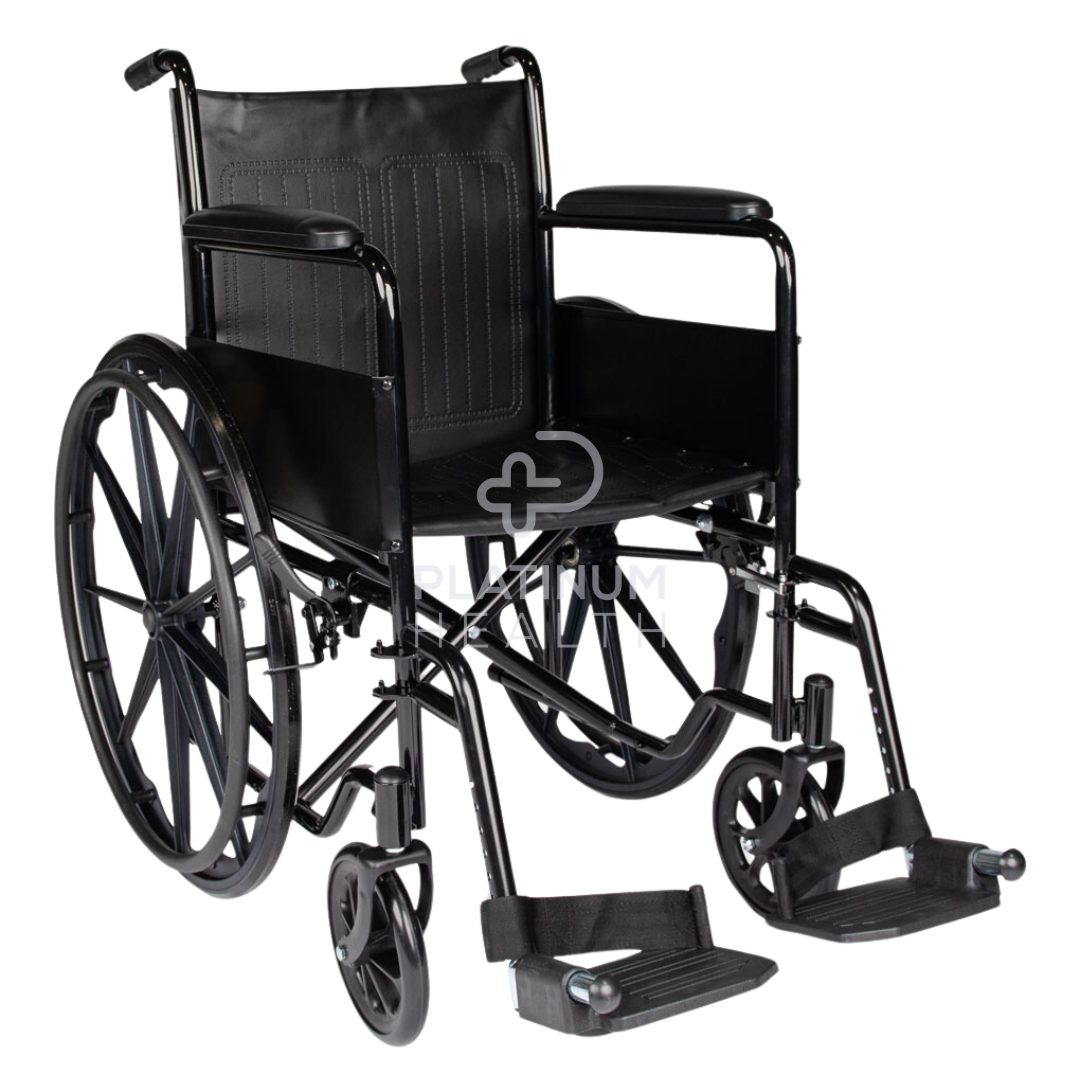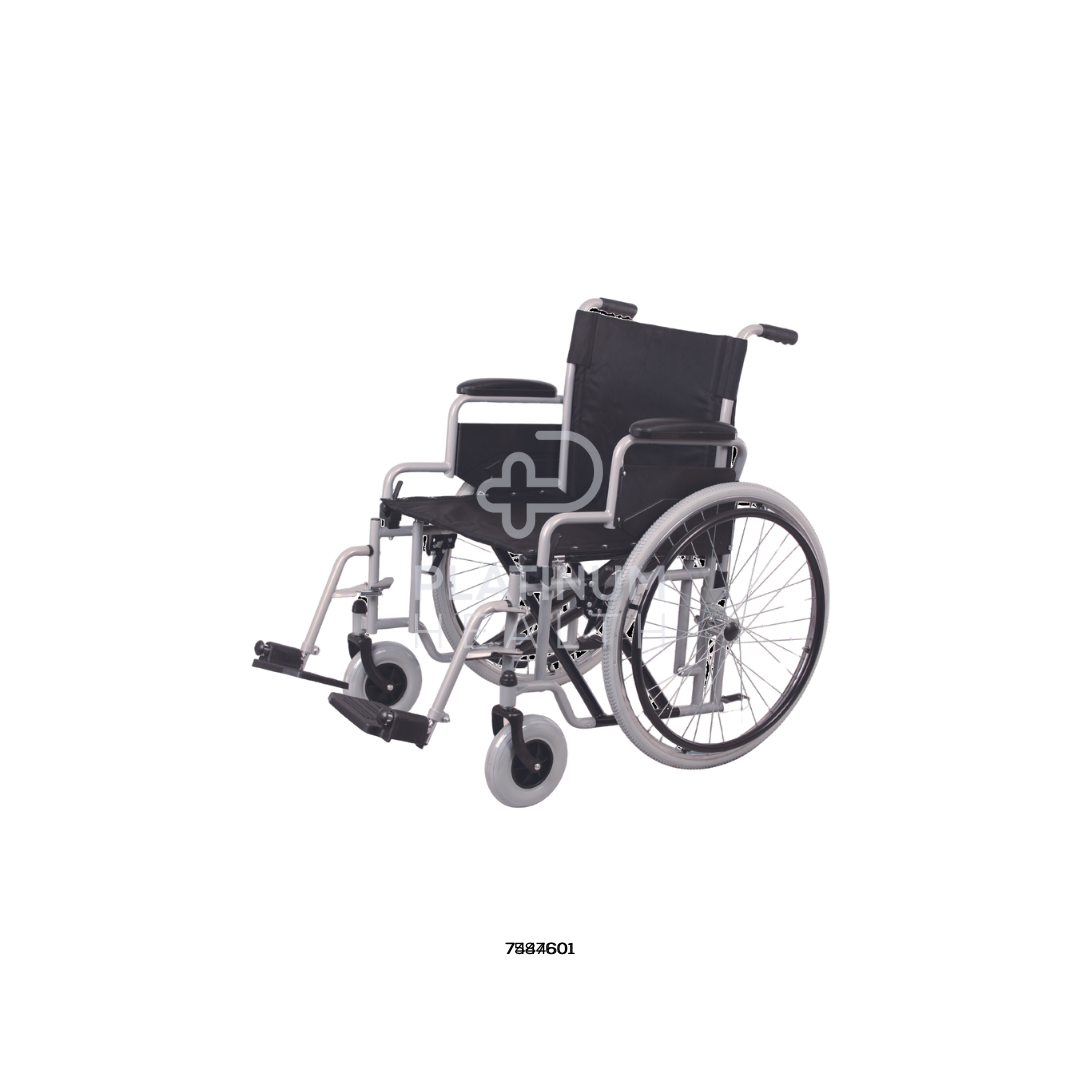Helping a Loved One Adjust to Using a Wheelchair

Adjusting to life in a wheelchair can be a big change—both physically and emotionally. Whether the shift is temporary due to recovery, or a more permanent part of daily life, it’s normal for your loved one to feel overwhelmed, frustrated, or unsure of what comes next.
As a carer, partner, or family member, your support can make a world of difference. From choosing the right equipment to creating a home that supports safe, independent movement, this guide will walk you through practical ways to ease the transition and help your loved one feel more confident in their new normal.
Let’s start with the emotional side of things because adjusting to mobility isn’t just about wheels and ramps. It’s about mindset, identity, and comfort too.
Understanding the Emotional Impact of Using a Wheelchair
Adjusting to a wheelchair isn’t just about mobility—it’s a deeply personal experience that can stir up a mix of emotions. Your loved one might feel relief at having greater independence, or they may struggle with grief, frustration, or even shame over needing help.
It’s important to remember that this transition affects more than just their body—it can challenge their sense of identity, confidence, and daily routine.
Common Emotional Responses Include:
- Loss of independence: They may feel like they’ve lost control over simple everyday tasks.
- Fear or anxiety: Especially if they’re worried about falling, being a burden, or navigating public spaces.
- Frustration or anger: When things take longer or don’t work the way they used to.
- Grief: Mourning the loss of mobility or life as they once knew it.
A Real Story Worth Watching
If you or your loved one is feeling unsure, we recommend watching this honest and emotional video by Footless Jo, a young amputee who shares her raw journey of learning to accept a wheelchair when she could no longer rely on her prosthetic leg full-time.
Watch: “I got a wheelchair and I hate how I feel about it”
In the video, Jo opens up about how she used to view mobility aids as a sign of weakness, and how that belief stopped her from using them, even when she needed them.
Sitting in a wheelchair became a visual reminder that her mobility may not last forever. But in time, she realised that the wheelchair wasn’t a symbol of loss. It was a tool that gave her back quality of life.
“It’s all about what’s gonna work for me, what’s gonna benefit my life, my body. What’s gonna give me a higher quality of life.”
This kind of mindset shift takes time. But stories like Jo’s remind us that there’s strength in accepting support, and that mobility aids don’t take away from a person’s identity—they help protect it.
How You Can Support Them:
- Listen without fixing. Sometimes, just being present and hearing their concerns can be more powerful than offering solutions.
- Validate their experience. Avoid phrases like “You’ll get used to it” or “At least you’re safe”—these can feel dismissive.
- Encourage small wins. Celebrate milestones, like moving through the house independently or learning to transfer into bed confidently.
- Be patient. The adjustment period isn’t the same for everyone, and some days will feel tougher than others.
How to Emotionally Support a Loved One Using a Wheelchair
Helping someone adjust to life in a wheelchair goes beyond physical care. It’s about being present emotionally too. Whether your loved one is navigating a temporary injury or a lifelong condition, the emotional toll can be heavy. Fear, grief, frustration, and loss of identity are all very real parts of this journey.
The good news? Your support can make a huge difference. And no, you don’t need a psychology degree. Just compassion, patience, and a willingness to listen.
1. Acknowledge Their Feelings (Yes, Even the Hard Ones)
Grief and frustration are common when someone loses mobility or independence. As Soreze Care explains, wheelchair users often experience a rollercoaster of emotions, including sadness, fear of the future, or even shame. Avoid the urge to “cheer them up” immediately. Instead, let them sit with those feelings. Let them vent. Let them cry.
Sometimes the best thing you can say is, “That sounds really hard. I’m here.”
2. Don’t Make It About You
It’s natural to feel upset watching someone you love go through tough changes, but be mindful not to shift the emotional spotlight. This isn't about you adjusting to them in a chair; it’s about them adjusting to a new way of living. Bridges Alliance recommends focusing on their needs, not your discomfort.
Instead of saying, “It’s so hard seeing you like this,” try, “How can I help make today easier for you?”
3. Promote Independence, Not Dependence
Helping too much might feel like love, but it can unintentionally take away your loved one’s confidence. Offer support, but don’t rush to do everything for them. Ask what they want help with and respect their answers.
Encouraging self-reliance builds confidence, and confidence is fuel for emotional resilience.
4. Celebrate Small Wins
Got out of the house today? Transferred from the bed to the chair with less help? Those are wins worth celebrating. Acknowledge progress, no matter how small. This helps shift focus away from what’s been lost and toward what’s still possible.
It’s not about toxic positivity. It’s about recognising strength in the everyday.
5. Encourage Social Interaction
It’s easy for people in wheelchairs to feel isolated, especially if outings suddenly seem more complicated. Help them stay connected. Invite friends over. Go for a stroll. Attend community events together.
Social connection is one of the most powerful buffers against depression and anxiety.
6. Respect Their Identity
A wheelchair doesn’t erase who someone is. Don’t assume their whole identity is now about their mobility. Keep talking about their passions, their hobbies, and their dreams. Keep the conversations normal.
They’re not just a “wheelchair user”—they’re still Mum, Dad, your mate, your sibling, your partner.
How Do You Make the Home Safer and More Accessible for Wheelchair Users?
Once your loved one begins using a wheelchair, their surroundings matter more than ever. Small steps, tight corners, or heavy doors can quickly turn into big obstacles. But the good news? Creating a wheelchair-friendly home doesn’t have to mean a full renovation. It’s often about thoughtful tweaks that improve safety, independence, and everyday comfort.
Start with Clear, Open Spaces
A wheelchair needs space to move, both in width and turning radius. According to Blue Badge Insurance, aim for doorways that are at least 850mm wide and clear hallways that allow easy turning, especially near bathrooms and bedrooms.
- Remove rugs, cords, and unnecessary furniture from high-traffic areas.
- Use wedge ramps for small steps or uneven surfaces between rooms.
Focus on Entryways and Doors
Entry points should be smooth and accessible. Installing ramps or threshold bridges can make all the difference, especially for older homes. It’s also worth considering lever handles or automatic doors where possible. GoDoors highlights how hands-free door automation can reduce risk and improve independence.
- Front entrance too steep? Portable ramps are a budget-friendly solution.
- Heavy door? A swing-free hinge or automatic opener can help.
If you're not ready for automated doors, a simple reacher tool can help manage hard-to-grab handles or fallen items indoors.

Make life easier with this lightweight, ergonomic reacher. Perfect for picking up dropped items or reaching high shelves without straining.
Best for: People with limited mobility, hand weakness, or those who want to reduce bending and reaching.
Bathroom & Bedroom Modifications
Bathrooms are high-risk areas, so non-slip mats, grab rails, and raised toilet seats are a must. Simply Helping recommends tools like over-toilet frames and shower stools to support safe, independent hygiene routines.
- Install grab bars near the toilet, bath, and shower.
- Use a waterproof chair or transfer bench for showering.
- Consider a low-profile bed or bed rail for easier transfers.

Hero Medical Toilet Pan Surround
Offers stable hand support when using the toilet. Lightweight, durable, and easy to clean.
Best for: Seniors or wheelchair users who need help with transfers in and out of the toilet.
View product

Hero Medical Bed Rail (Height Adjustable)
Provides extra stability for getting in and out of bed, with an easy-to-hold handle for extra peace of mind.
Best for: Those who need extra confidence with mobility around the bed.

Aspire Free Standing Self Help Pole
Helps users reposition in bed without needing a carer—just grab and pull.
Best for: Promoting independence with in-bed movement.
Think About Flooring
Thick carpet can make wheelchair movement a chore. Hardwood, vinyl, or low-pile carpet is ideal. Keep floor surfaces dry and free of clutter, especially in transition areas like doorways or kitchen thresholds.
Lighting and Visibility
Good lighting helps prevent accidents. Install bright LED lighting in hallways and bathrooms, and use nightlights in bedrooms for easy midnight navigation.
Assistive Tools That Make Everyday Tasks Easier
Sometimes the little things—like lifting your legs into bed or turning in your seat—can be the hardest. That’s where adaptive aids come in handy.

A simple tool to help lift or position legs—great for getting into bed or the car.
Best for: Individuals with reduced lower body strength or flexibility.

Patient Transfer Swivel Cushion
Reduces strain during seated transfers. Just sit, swivel, and go.
Best for: Carers assisting with vehicle or chair transfers.
Don’t Forget About Seating Comfort
Proper support matters, especially when your loved one is spending hours in their wheelchair. A good cushion prevents pressure injuries and boosts comfort.

Vicair Adjuster O2 Wheelchair Cushion
This premium cushion adjusts to your shape for optimal pressure relief and postural support.
Best for: Long-term wheelchair users or anyone at risk of pressure sores.
Still Looking for the Right Wheelchair? Here's Where to Start
Choosing a wheelchair is a big decision. It’s about comfort, lifestyle, and helping your loved one feel confident in their independence. Whether you're shopping for short-term recovery or a long-term mobility solution, the right chair can make everyday life smoother for both of you.
Here are some of our top options to help guide your decision:
1. Hero Medical Super Budget Wheelchair

Shop the Hero Medical Super Budget Wheelchair
If you’re after something simple and affordable to get started, this lightweight wheelchair covers the basics without breaking the bank. It’s easy to fold, store, and transport, ideal for occasional use or hospital trips.
Why you’ll love it:
- Super lightweight and foldable
- Ideal for transport and short-term needs
- Budget-friendly
Best for: Families who need a practical, no-fuss wheelchair for short outings or temporary recovery periods.
2. Aspire Evoke 2 HD Wheelchair

Shop the Aspire Evoke 2 HD Wheelchair
For those who want more durability and comfort, this heavy-duty chair is a standout. It’s designed for everyday use and offers a reinforced frame, adjustable leg rests, and solid rear wheels for smoother navigation.
Why you’ll love it:
- Built tough for frequent use
- Height-adjustable and ergonomic
- 125kg weight capacity
Best for: Individuals who require daily support with added strength and stability.
3. Bariatric Wheelchair

Mobility support should never be one-size-fits-all. This bariatric wheelchair is built for comfort, strength, and peace of mind with a wider 22” seat and a heavy-duty frame supporting up to 160kg.
Why you’ll love it:
- Extra wide for added comfort
- Smooth-rolling wheels
- Reinforced frame for higher weight capacity
Best for: Larger individuals needing extra room, stability, and ease of movement.
4. Travel Lite Electric Folding Power Chair

Shop the Travel Lite Electric Power Chair
Want something that moves with you? This compact electric chair folds down quickly, making it perfect for travelling or daily outings. It’s lightweight but powerful, with a phosphate lithium battery that goes the distance.
Why you’ll love it:
- Electric drive with folding design
- Airline-friendly battery
- Ultra-light aluminium frame
Best for: Active users, travellers, or anyone who values mobility on the go.
You're Not Alone in This Journey
Supporting a loved one through the transition to using a wheelchair can feel overwhelming at times, but it doesn’t have to be something you do alone. With the right mix of emotional support, home adjustments, and the right mobility products, you can make their day-to-day life more comfortable, confident, and connected.
Whether you’re still exploring wheelchair options or already deep into the journey of caregiving, our team is here to help guide you through it all. From mobility aids and pressure relief cushions to friendly advice, we’re just around the corner.
Come visit us at our Epping showroom to try products in person and speak with a team that truly understands care.
Unit 2/51 Trafalgar Road, Epping VIC
Open weekdays, 9am–5pm
Need a hand choosing the right wheelchair or home support gear? Get in touch or pop by! We’re always happy to help.
Health Disclaimer
This blog is intended to provide general guidance for carers supporting a loved one adjusting to life in a wheelchair. The information shared reflects reputable sources and lived experiences, but it is not a substitute for professional medical or psychological advice.
If your loved one is showing signs of severe distress—such as withdrawal, persistent sadness, heightened frustration, or noticeable changes in mood or behaviour—it may be time to speak with a GP, occupational therapist, or mental health professional. These changes can be a normal part of adjustment, but professional support can make all the difference in navigating the emotional and physical challenges of mobility changes.
All product mentions are for informational purposes and should only be used after consulting with a healthcare professional to ensure suitability for your loved one’s specific needs. Platinum Health Supply is not liable for any outcomes resulting from the misuse or misinterpretation of the information provided.
